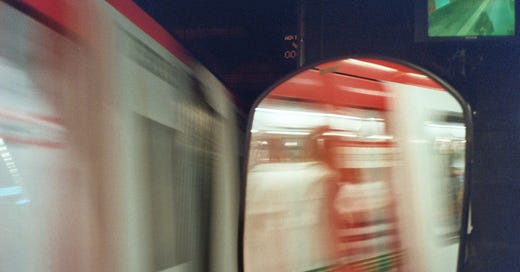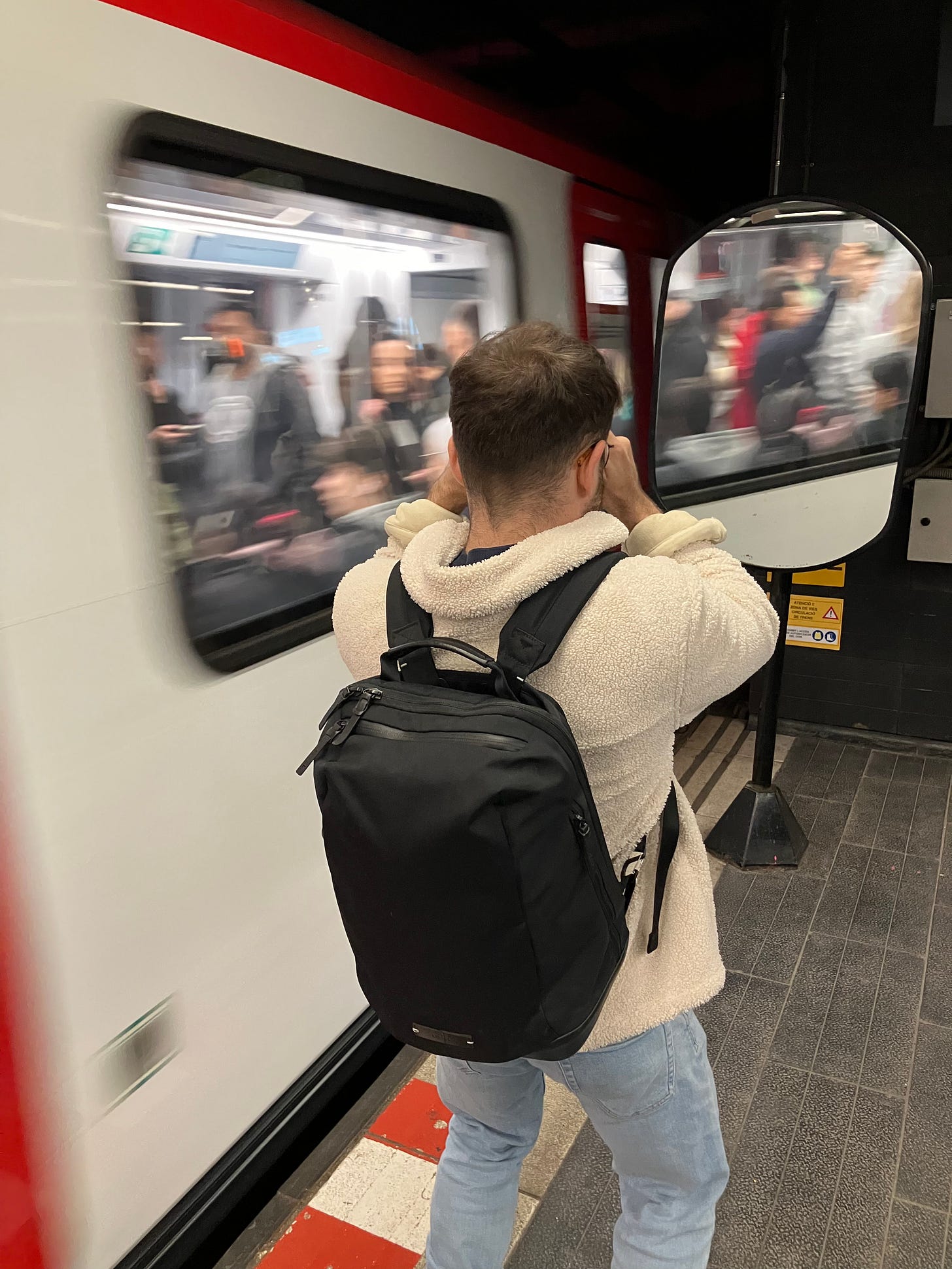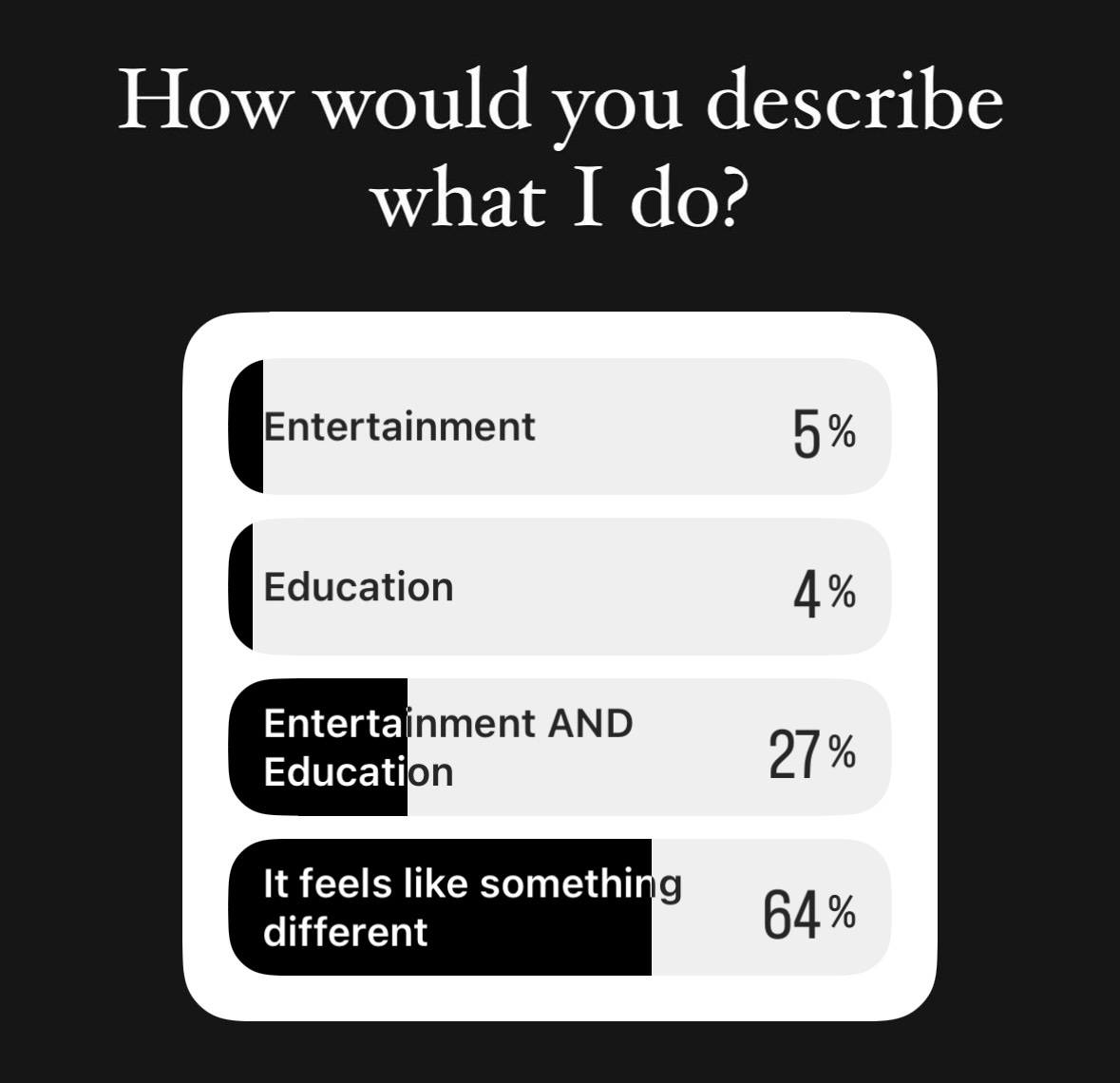Apologies for the late post! We’re back to regularly scheduled programming next week ;)
Also, if you’re interested, the next Substack Zoom Hangout (accessible to all paid subscribers) will be happening on Tuesday, April 15th at 7pm CEST (that’s 1pm East Coast and 10am West Coast). I’ll send the link to join 24 hours before.
It’s really fun, we discuss life and what it means to be alive and I always leave buzzing with new ideas.
My life changed during the Winter Break of 2010. I was in 7th grade and went home with a creative writing assignment from English class. Write a fictional story.
Up to that point in my life, I did not really think of myself as a very creative person. I think this is remarkably common: I see most people question their ability to make art. I remember the girls in my class had much prettier handwriting and were far better at drawing than me.
The internet was less present in my life 15 years ago, not much social media back then and YouTube was still a baby but even back then, you’d hear about or see absurd prodigies like a newborn infant playing Mozart straight out the womb, so in my head it was like, “well fuck I definitely can’t do that so I guess I won’t be offering the world much art.”
I had never understood the purpose of arts and crafts as a kid, which felt like random tasks adults were forcing me to do, void of meaning, and because they lacked meaning, they were quite boring.
This makes no sense + I’m very bad at it = my defeatist attitude around anything creative.
Back in 2010, I did not use or even know about Spotify. Instead, there was a website called Pandora. You couldn’t stream any song at will, but you could start a radio inspired by a specific song or artist, and it would play you random but related music.
So on my ancient dinosaur of a second hand PC laptop that my parents had given me to do school homework assignments, I sat in my living room, put on some Johann Strauss II and gave it a shot.
Little did I know that I was about to experience a feeling I had never felt before: completely getting lost in the work.
I had this idea for a science fiction story set in the future. It would take place in 2061, 98 years after the assassination of JFK (which happened 98 years after the assassination of Abraham Lincoln), a group of teenagers have to work together to prevent a repeat assassination from happening. Clever, no?
I’d sit down to write and I honestly can’t even really explain how it happened, but basically the hours would just fly by. It was so much fun. By the end of those two weeks, I had written 105 pages. 105 pages?! Even now I look back at that wonder how I did it. Maybe I peaked when I was 13 years old!
The writing itself was not that important. I don’t think it was very good. I wasn’t trying to be creative, I was just trying to tell an immersive story, a story I accidentally became quite invested in. And I tell this story because I had stumbled upon something way bigger than an interesting story.
The thing that’s never left me was how those two weeks felt. It was the best of winter breaks. Working on this project felt almost spiritual, like I could take a break from my body and go on a trip, building worlds, creating relationships with the characters I was making.
I was a pretty anxious teenager, but for two weeks, I wasn’t worrying about things, I was just making things. Looking back, this was a turning point for me. I realized whatever this thing was, I needed to dedicate my life to it.
People often declare that “I’m just not creative like that” but I think it’s just because it hasn’t clicked yet – it’s just that you just haven’t figured out what your relationship is to the work.
The work itself isn’t always fun. Hemingway put it well when he said:
“Don’t get discouraged because there’s a lot of mechanical work to writing. There is, and you can’t get out of it. I rewrote A Farewell to Arms at least fifty times. You’ve got to work it over. The first draft of anything is shit. When you first start to write you get all the kick and the reader gets none, but after you learn to work it’s your object to convey everything to the reader so that he remembers it not as a story he had read but something that happened to himself. That’s the true test of writing.”
(By the way my video living Hemingway’s daily life just came out and I’m really proud of it, you can check it out here.)
Of course, what Hemingway is saying here applies to a lot more than just writing. Oftentimes, the work is a slog, so you have to find deeper reasons to keep coming back to it. And in 2010, I realized that I really liked how I felt when I made myself sit down and listen closely to what exactly it is that I want to say. I usually have no idea what I’m going to find.
That last point I made is maybe the most important: I have no idea what I’m going to find. This makes the process of making art one that is rooted in uncertainty. It is an exercise in faith – faith in my taste, what I am drawn to, what moves me. Faith in my eye, faith in the process. Renounce the rationalizing and the logic and let something else take over.
I believe one of the fundamental barriers that we all must traverse in the journey of making art is that of uncertainty. How willing are you to engage in it? To swim in it.
A year and a half ago, I ran a poll on instagram, I was curious if people saw what I do more as ‘entertainment’ or ‘education’.
I don’t know what I was expecting exactly, but definitely not this response:
“Oh I see, so I have absolutely no idea what people are getting out of what I make.” I thought to myself as I saw the results coming in.
This is both humbling and thrilling to me.
But this ultimately reflected my ongoing feeling about life since as long as I can remember – that I’m blindly scratching at something bigger, and I’m not exactly sure how to label it or explain it, and I’m not sure that you can.
The thing I’ve learned is that you don’t have to know what that bigger thing is. Just focus on your relationship to the work that you have to do, and the rest will sort itself out. Don’t worry about making something “good” or “impactful.” Just make something that feels connected to the Truth. That’s always going to be more than enough. And if you feel something in the process of making what you’re making, most likely someone somewhere out there will feel something too.
This is what I wish for all people that feel uncertainty when starting a new project or moving in a new direction or that don’t think of themselves as creative to understand: your brain will never figure it out. Let things be uncertain. Welcome the uncertainty if you can. Your ability to tolerate it will expand.








Your work feels to me like being part of a conversation, one of those moments when someone expounds on something they have been thinking about. For this same reason, I´m fond of the short memoirs -- that are more like a collection of essays -- that people have been publishing lately.
I have long found this to be a useful guidepost:
¨At any moment when you are you you are you without the memory of yourself because if you remember yourself while you are you you are not for purposes creating you.¨ -- Gertrude Stein What Are Masterpieces
"Just make something that feels connected to the Truth."
^^This has been on my mind a lot lately.
It’s so easy to fall into the trap of chasing what seems like a sure path to success—especially on a platform like Substack.
But I’ve found that the things people resonate with most are the ones that feel authentic and true—whatever that means to you.
The path is always uncertain, but authenticity almost always cuts through.
Thanks for the reminder!